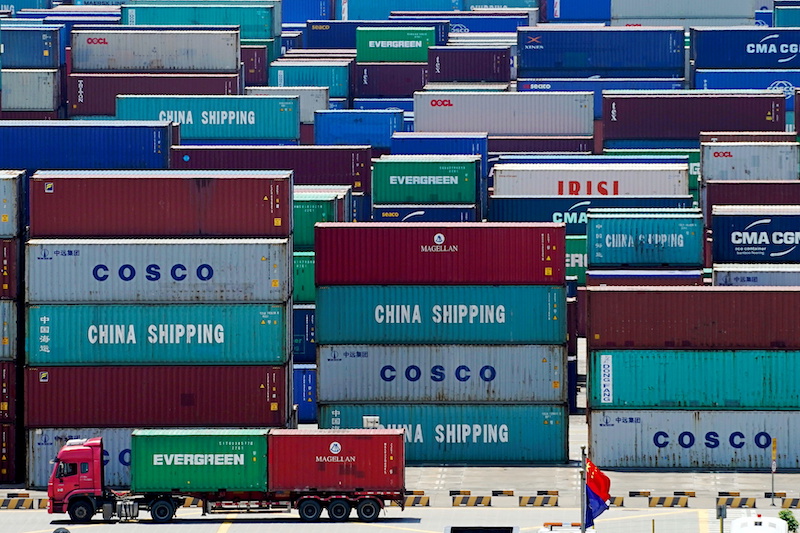Weak global demand and unrelenting Covid restrictions are set to scupper China’s traditional year-end export surge.
A frozen property sector and ebbing domestic consumption are also set to take a toll on the world’s second-biggest economy which usually sees an end-of-year bounce back.
Exports fell unexpectedly in October for the first time since May 2020, and signs are grim for the November-December period when demand normally peaks as overseas clients place orders before China’s factories close for Lunar New Year holidays in January or February.
Also on AF: Asia Stocks Slip on US Election Uncertainty, Crypto Crisis
Exporters had already failed to see the typical pre-Christmas surge during the summer. Analysts expect global recession risks and China’s disruptive Covid curbs will further drag on exports in coming months, dashing hopes for an economic rebound this quarter.
“Pressure has never been huge like this,” said Qi Yong, a Shenzhen-based exporter selling electronics to Europe. Russia’s war in Ukraine has also inhibited European spending for items like electronics that are not daily necessities, he said.
Demand from customers in some developed markets has also shifted from pandemic-driven goods, such as consumer electronics, to services including travel, as many Covid-hit countries reopened their borders.
“Weak export growth is a real problem for China because it has been the only strong component of what Beijing refers to as ‘high-quality’ growth, which is mainly growth driven by increases in domestic consumption, exports and business investment, with the last of these driven in turn by the first two,” said Michael Pettis, professor of finance at Peking University.
That means Beijing must either step up investment in infrastructure, which is likely to cause debt to surge, allow an unwanted rise in unemployment or boost payments to ordinary households, which so far it has been unable to do, Pettis said.
Outbound shipments, after peaking for the year in July, have been deteriorating by value, despite a falling Chinese currency, official data show. A closely watched private-sector survey focusing on small manufacturers shows export orders contracting since August.
China Toy Export Decline
Buyers usually book orders for Christmas and Black Friday around August, but weak demand already sapped any lift this period.
And things have only got worse. Declines in China’s exports of toys accelerated to 17.9% on-year in October from 9.7% in September, clothing to 16.9% from 4.4% and home appliances to 25% from 19.8%, according to Reuters calculations based on customs data.
The slump is particularly evident in developed economies: shipments to the United States fell 12.6% in October by value and to the European Union by 9%.
In line with the export declines, freight rates from Shanghai’s port to the US west coast, Europe and South America were down by 11.6% to 16% on November 4 from a week earlier, according to the Shanghai Shipping Exchange.
Global inflation pressure had prompted some overseas buyers, concerned about further rises, to boost purchases from China in the middle of the year, earlier than usual, said Bruce Pang, chief economist at Jones Lang Lasalle.
“The traditional Christmas peak season has disappeared in 2022,” Pang said.
- Reuters with additional editing by Sean O’Meara
Read more:
China Exports, Imports Fall in October as Global Demand Drops
China Exports to Russia Soar Despite Economic Slowdown
China Exports Surge Past Predictions in June, Imports Stall
























